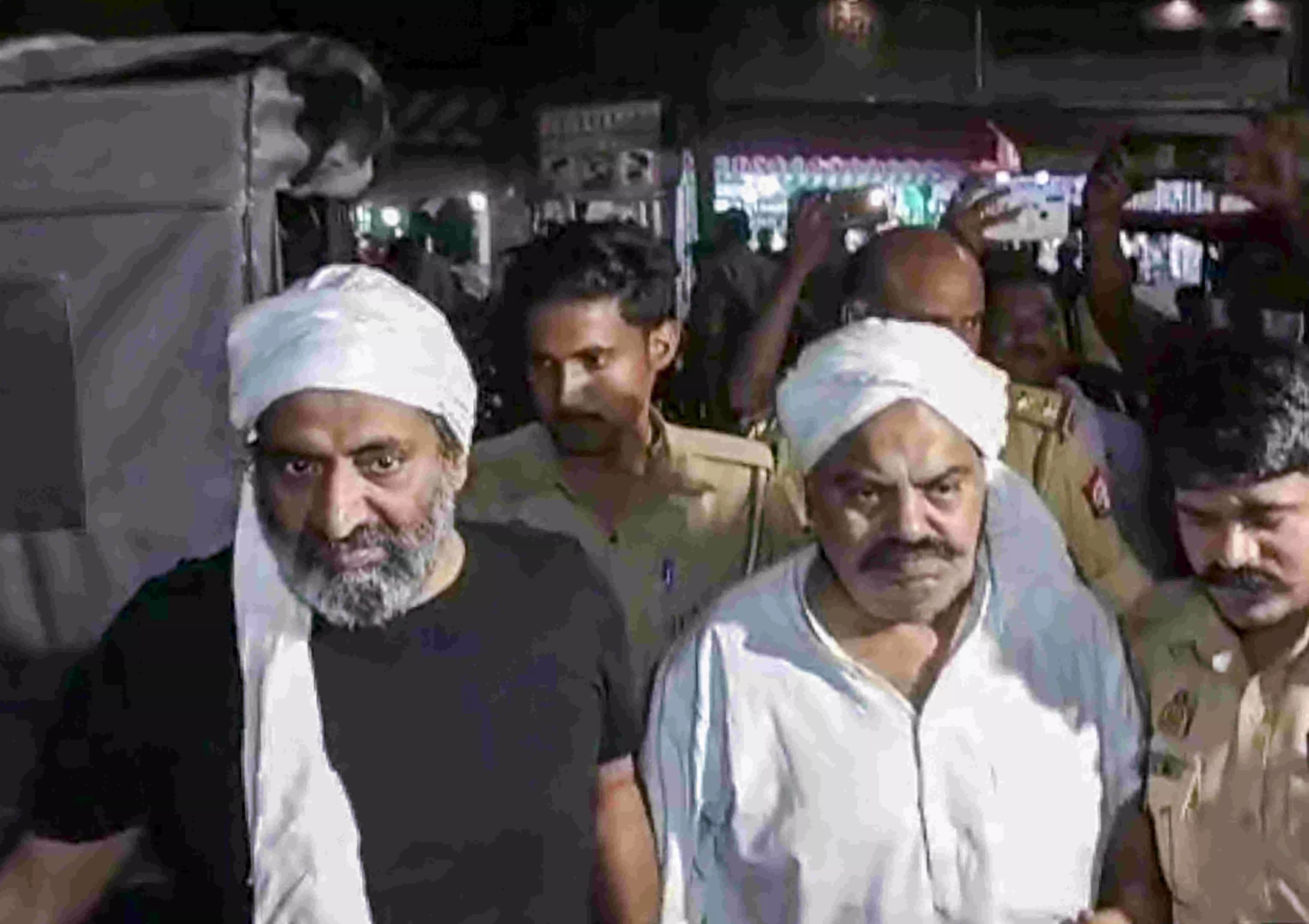A serious lapse

In what could be called a complete lapse of the state machinery, two former politicians of Uttar Pradesh — Atiq Ahmed and his brother Ashraf Ahmed — were shot dead under the nose of the police, in front of live TV cameras. Atiq had a criminal background. Last week itself, Atiq’s son, Asad, was killed along with his aide Ghulam in a police encounter. Following the death of his son, whose funeral he was not allowed to attend, Atiq had burst out saying, “I am totally reduced to dust, but please don’t trouble the women and children of my family now.” It is intriguing as to why two individuals, completely caught in the clutches of law, and facing strict onslaught from the state administration, have to be killed in broad daylight, with an obvious risk of being caught, for the assailants. The religious slogans raised by the assailants hint towards the mentality of the criminals, though the slogans may be faked ones to cloud their identity. The three assailants, identified as Lovlesh Tiwari, Arun Maurya and Sunny, were aged between 18 and 23. The crime was pre-planned, and committed in cold blood as the assailants shot at least 14 bullets, including one pointed at the left temple of Atiq. Some live cartridges were also recovered from the scene. The assailants showed the guts to kill the brothers and surrender themselves to the police, exhibiting a sense of firmness that underlay their conviction to kill the brothers. Their cause, they must have been convinced, was something very important. It is difficult to say whether their religious sloganeering and the ‘boldness’ shown in the act of surrender was intended to earn apathy from a particular religious community or even from the state, which is ostensibly inclined towards Hindutva. Reports suggest that the Uttar Pradesh government has submitted a report to the Union Home Ministry, stating that the situation is under control in the state and that commissions have been formed to probe the matter. The crime incident has left Uttar Pradesh in a state of boil, with Section 144 imposed across the state, police stations being on high alert, and sensitive targets being cautioned and protected. While the state government is trying to control the situation on a priority basis, there are larger questions that need to be answered with an equal sense of urgency. The Uttar Pradesh police must be held accountable for the serious lapse. In the video of the murder, a bunch of ill-equipped policemen can be seen surrounding Atiq Ahmed and his brother while the young assailants went on the rampage. The sight is a matter of shame for the UP police, where it was found completely clueless on how to respond. The laxity shown by the police creates a further dent in their already tarnished image of being perpetrators of extra-judicial killings. In the last six years, as many as 184 individuals have been encountered by the police, including Atiq Ahmed’s son and his aide. Quite disturbingly, it has been covertly touted by some as an alternative method of delivering justice. This completely flawed notion, often backed by popular support, ignores the fact that India’s justice system is still intact and should not be bypassed at any cost. If there is one thread that runs across India’s post-independence era, and distinguishes it with the pre-independence era, it has been the rule of law. By bypassing this rule of law, the state administration in Uttar Pradesh might be taking India into a dark, regressive past. The trajectory of Atiq’s downfall was scripted the day when UP CM personally vowed to grind him to dust, barely a couple of months ago. It is true that Atiq had a very long crime history and was accused in more than 130 cases, but as an individual, he had all the rights to be treated and punished under the rule of law. It doesn’t suit the state to get personal with criminals. Once that is done, an air of biasness creeps in, emboldening the ‘fringe’ elements to create a state of chaos. The state government must accept its failure in protecting the at-risk lives of two individuals, and ask some harsh questions from the police for their visible inability and inaction. If it fails to do so, it will be a still larger blot on the law-and-order situation of the state.



